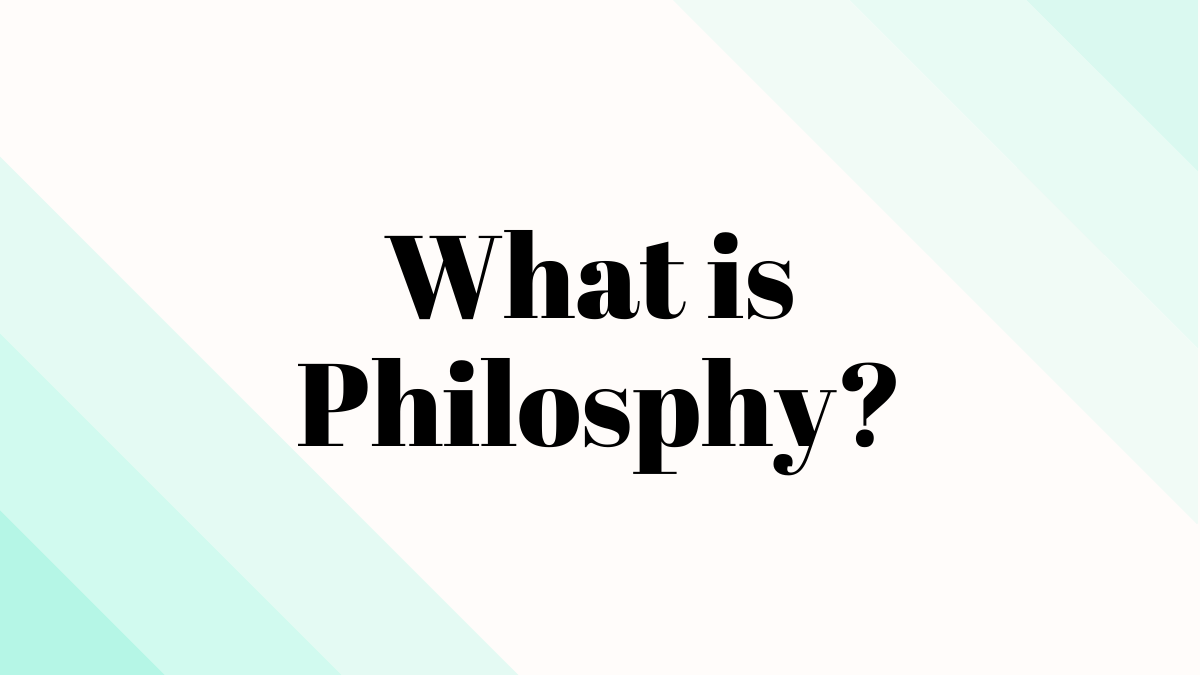Your cart is currently empty!
For the first post for this series, I want to define what philosophy is. Relatively, philosophy is a tool to find the answers of the universe. There are many different approaches, and schools of thought, that render philosophy useless as they believe it is trying to answer a question that can never be solved.
Naysayers critique this area of study because, how there could ever be something so universal? Many deconstructuralists look at philosophy as a complete failure, believing that philosophy has not really discovered or validated anything that is true. What deconstructuralism views philosophy as is different from what philosophy is to Gilles Deleuze, a prolific postmodern French philosopher.

Let’s back up a little bit and understand what philosophy has done throughout history.
Before Baruch Spinoza, one of the most influential philosophers of the early modern period, philosophy has always been viewed as in terms of God and human. That there would always be two distinct things in the world, and from this distinction there was a subset of what is inferior and what should be aimed for. Philosophy was used to define what “God” is and what “Gods” do. Therefore, philosphers could say what people should aim for in their life and be able to strictly divide the classes.
Baruch Spinoza argued, however, that the universe is all one thing. Instead of viewing the world as created by an external being, he stated that we are modes inside an infinite substance. A cat, a dog, a human, a rock, and a chair are all different versions of God, and that there should not be a separation between God and living things because we are all modes of God.
So, how does this relate to Deleuze? Well, Delueze also argued for this, which is a term called monism. An interesting part of Deleuze thought, is he still believes that identity lies in what makes us different. Now, it might seem confusing. You may ask yourself why did Delueze want to say everything’s the same if only to focus on the differences?
Delueze believes that difference is not an empirical relation but becomes a transcendental principle. I will explain these transcendental principles more in a later post. Delueze ultimately goes to say philosophy is the production of concepts. It’s about creating different frames of which we can see problems in. The way philosophers think has had ripple effects throughout time.

In ancient Greece, for instance, political realm was viewed as a good within itself. Therefore, ancient Greek societies focused on what political realms should do; they viewed the political realm as a way to ensure happiness for the people.
This was altered when English philosopher John Locke expressed his ideas on politics, casuing a movement that the political sphere is only “good” if it can ensure our rights and liberties in the private sphere. There is then a transition into believing in the social contract laws and how justice is externally good.
So, I leave this post with some questions for next time: What could be the power in defining what God is? How are we a part of God and also caused by God in Deleuze metaphysics? What are the true implications of being a transcendent being? How does this production of concepts work?
Until next time.
Stay thinking.
Ocean
3 responses to “A Brief Introduction of Notorious Notions in Philosophy”
-
I enjoyed reading this. I’m a terrible philosopher. I tend to go on faith and ditch most of the rest of why, mostly because there are so many why questions! My God is in everything, He is creator and He isn’t always the nice guy who pats one on the head for believing in Him. He’s also not as narrow as most persons I know believe. I’ve also never been one who believes everyone/thing is the same. Sheesh, I’ve had two sons and they are VERY different. Rocks are similar and yet not, it is our differences which make us so unique. Yet, even with those differences, we aren’t that dissimilar. Most of us have hair (some look better without it…Patrick Stewart!), working eyes, teeth, toes, and so on. Yet, just cuz someone is missing his eyesight, doesn’t make them a lesser person. We only become lesser humans when we try to elevate differences and insist that one is better than another.
I don’t pop in this part of WP often, I’ll try to do that more and follow where you are going with these thoughts!-
Thank you so much for reading and commenting! Philosophy seems to have way more questions than it does answers and so many things can get muddled in between. Hopefully, I can help navigate through it! Also, I agree that it is really natural to see God in everything, but when Spinoza and Deleuze suggested this, they actually got excommunicated from the church! Further, what you say about what makes a person a person is actually a really big debate in philosophy, so unknowingly you already are one! I will definitely post more explaining this version of monism and then go on to dualism and then my favorite, pluralism. So please, stay tuned 🙂
-
-
Really interesting post.


Comment